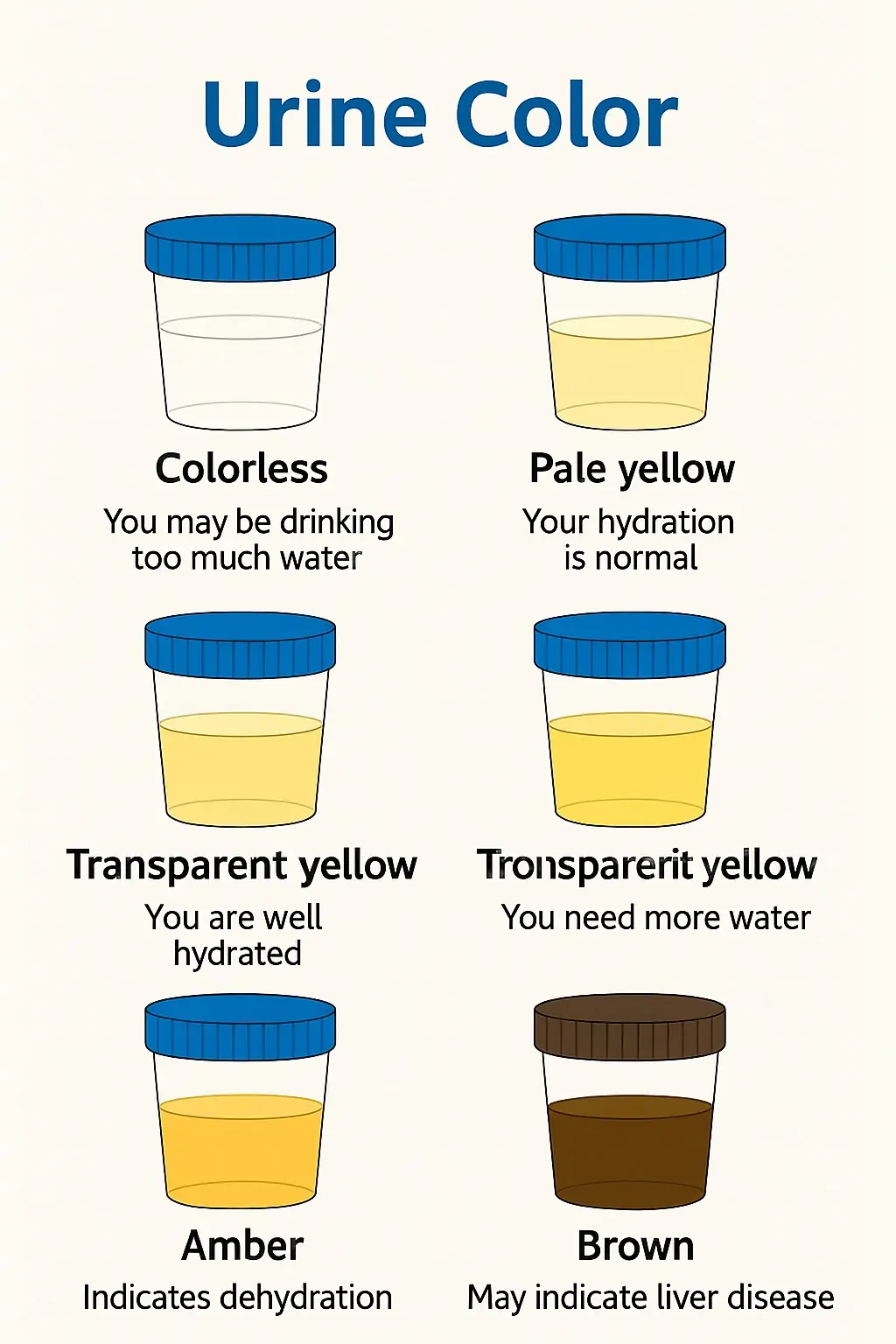
Why You Keep Waking Up at Night

We all know that sleep is essential for good health — it restores the body, sharpens the mind, and balances our emotions. Yet when you keep waking up in the middle of the night, that restorative rest can feel frustratingly out of reach. Interrupted sleep doesn’t just make you tired the next day; over time, it can affect your mood, productivity, and even your immune system.
If you’re tossing, turning, or staring at the clock at 3 a.m., you’re far from alone. Millions of people experience nighttime awakenings for a variety of reasons. Below are some of the most common causes — along with practical steps you can take to get your nights back on track.
1. Frequent Urination
Waking up to use the bathroom multiple times a night is one of the most common sleep disruptors. This can happen for many reasons, including high fluid intake late in the day, certain medications, or underlying medical conditions.
What helps:
-
Limit fluids in the evening — especially alcohol and caffeine, which can irritate the bladder and increase urination.
-
Try to make your last drink at least two hours before bed.
-
If the problem continues, talk with your doctor. It could be related to an overactive bladder, an enlarged prostate, diabetes, or another condition that needs attention.
2. Overheating
If you wake up drenched in sweat or constantly kick off your blankets, your sleep environment may simply be too warm. Even small temperature increases can disrupt your ability to stay asleep.
What helps:
-
Keep your bedroom between 60–67°F (15–19°C) — the ideal range for deep, uninterrupted sleep.
-
Choose breathable fabrics like cotton or linen for sheets and pajamas.
-
If night sweats are linked to menopause, hormonal shifts, or medications, consult your healthcare provider for personalized solutions.
3. Sleep Apnea
Sleep apnea causes your breathing to pause repeatedly during sleep — often without you realizing it. These pauses can jolt you out of deep sleep, leaving you exhausted even after spending enough hours in bed.
What helps:
-
If you snore loudly, gasp for air at night, or wake up feeling unrested, consider a sleep evaluation.
-
Treatments such as CPAP machines, oral appliances, or lifestyle adjustments (like weight management or side-sleeping) can drastically improve your sleep quality and overall health.
-
Addressing sleep apnea early can also reduce long-term risks such as high blood pressure and heart disease.
4. Insomnia
For some people, the mind switches into overdrive the moment their head hits the pillow. Others fall asleep easily but wake up at 2 or 3 a.m. and can’t drift back into sleep. Both are forms of insomnia.
What helps:
-
Stick to a consistent sleep schedule — going to bed and waking up at the same time every day strengthens your body’s internal clock.
-
Create a relaxing bedtime routine: dim the lights, read a calming book, stretch gently, or meditate.
-
Avoid screens and stimulating activities at least one hour before bed.
-
Persistent insomnia may benefit from cognitive behavioral therapy for insomnia (CBT-I), which is considered one of the most effective long-term treatments.
5. Anxiety, Depression, and Worry
Emotional stress can be just as disruptive as physical discomfort. Anxiety, depression, and chronic worry often interfere with both falling asleep and staying asleep. Racing thoughts or lingering tension can pull you out of restful sleep throughout the night.
What helps:
-
Try deep breathing, journaling, or guided relaxation before bed to calm your mind.
-
Keep electronics outside the bedroom to avoid overstimulation.
-
Therapy, counseling, or medication — when appropriate — can address the root causes and significantly improve sleep patterns.
6. Night Terrors
Although more common in children, night terrors can affect adults too. These episodes can be intense and may leave you feeling disoriented, anxious, or startled even if you don’t fully remember them.
What helps:
-
Maintain a stable sleep schedule and reduce stress before bedtime.
-
Practice relaxation techniques or gentle stretching in the evening.
-
If night terrors occur frequently or cause emotional distress, speak with a sleep specialist or mental health professional for guidance and treatment options.
7. Indigestion
Eating heavy, spicy, or greasy foods late at night can cause heartburn or indigestion, making it difficult to stay asleep. Lying down too soon after eating can also aggravate acid reflux.
What helps:
-
Eat dinner at least two to three hours before bedtime.
-
Avoid acidic, spicy, or high-fat meals in the evening.
-
Elevate your head slightly with an extra pillow to help prevent acid from rising during the night.
8. Screen Use, Light, and Noise
Phones, televisions, and bright lights send signals to your brain that it’s still daytime. This reduces melatonin — the hormone that promotes sleep — and can make it harder to fall and stay asleep.
What helps:
-
Turn off screens at least one hour before bed.
-
Use blackout curtains to eliminate outside light and consider white noise machines or earplugs to block distracting sounds.
-
If you must use screens at night, blue-light-blocking glasses or device filters may help reduce stimulation.
The Bottom Line
Getting quality sleep isn’t just about clocking enough hours — it’s about achieving deep, uninterrupted, restorative rest. By identifying what’s waking you up — whether it’s physical discomfort, emotional stress, environmental factors, or an underlying medical issue — you can make small but powerful changes that lead to more peaceful nights.
If sleep disruptions persist despite your best efforts, don’t ignore them. A healthcare professional or sleep specialist can rule out underlying disorders and help you find the right solutions.
Because everyone deserves to wake up feeling rested, recharged, and ready to take on the day.
News in the same category


14 Warning Signs of Low Magnesium Levels and What to Do About It (Science Based)

Top 10 Foods to Heal Knee Pain and Boost Cartilage Naturally

Blood Type O Diet: What to Eat and What to Avoid

7 nutrients that actually repair nerves

This one vitamin could help stop you from waking up to pee every night

The Cold Room Sleep Trick That Can Transform Your Health

Research reveals the #1 vitamin for eye protection

What Your Urine Color May Be Telling You (Gently & Naturally)

Soothe Leg Pain Naturally: Garlic & Clove Remedy for Joints, Circulation, and Comfort

Eat Garlic — But Avoid This Common Mistake! | 95% of People Don’t Know This Simple Trick

Home Remedies For Kidney Stones – 21 Remedies For Effective Pain Relief

Eat One Clove of Garlic Every Morning on an Empty Stomach – and Watch These 12 Health Benefits Unfold!

Never do this when flying; many people have ruined their lives because they didn’t know better

Public Health Experts Stress Vaccination as Key to Preventing Severe and Long COVID

People who are about to be affected by cancer often show three unusual signs in the neck; even having just one of them can be a warning for your health

4 vitamins to reverse neuropathy and damaged nerves – relieve foot & hand pain fast!

8 Amazing Foods To Clean Out Your Toxic Liver

Stem Cell Breakthrough Offers New Hope for Reversing Diabetes in Early Human Trials
News Post

I Didn't Tell My Husband's Family I Speak Their Language, and It Helped Me Uncover a Sh0cking Secret About My Child

How I Exp0sed My Husband’s Li es: A Cheating Anniversary He'll Never Forget

THE CAT THAT BR0KE ALL THE RULES: A POLICE OFFICER'S UNEXPECTED MISSION

Mullein: Exploring the Benefits of Leaves, Flowers, and Roots

Airport X-Ray Scanners Upgrade: Shocking Level of Details

From White Hair to Naturally Darker Hair: Fast Home Remedies & Growth Tips

Teen told he just had ‘growing pains’ dies day after diagnosis

7 Ways To Use Vaseline For Wrinkle Free, Flawless Skin

EVERYTHING JAMES FRANCO SAID ABOUT BEING ‘CAST OUT’ FROM HOLLYWOOD DURING HIATUS

The #1 seed that makes bones & muscles strong—how to use it!

14 Warning Signs of Low Magnesium Levels and What to Do About It (Science Based)

Strictly Come Dancing star eliminated from competition on their birthday

Top 10 Foods to Heal Knee Pain and Boost Cartilage Naturally

Blood Type O Diet: What to Eat and What to Avoid

7 nutrients that actually repair nerves

Coronation Street's Lucy Fallon shows off huge ring as she announces engagement

MAFS UK’s ‘strongest’ couple split after romantic display at reunion

The Versatility and Benefits of Orange Peel Powder

The Hidden Power of the Honey Locust Tree (Gleditsia triacanthos): Health, Healing, and Everyday Uses
